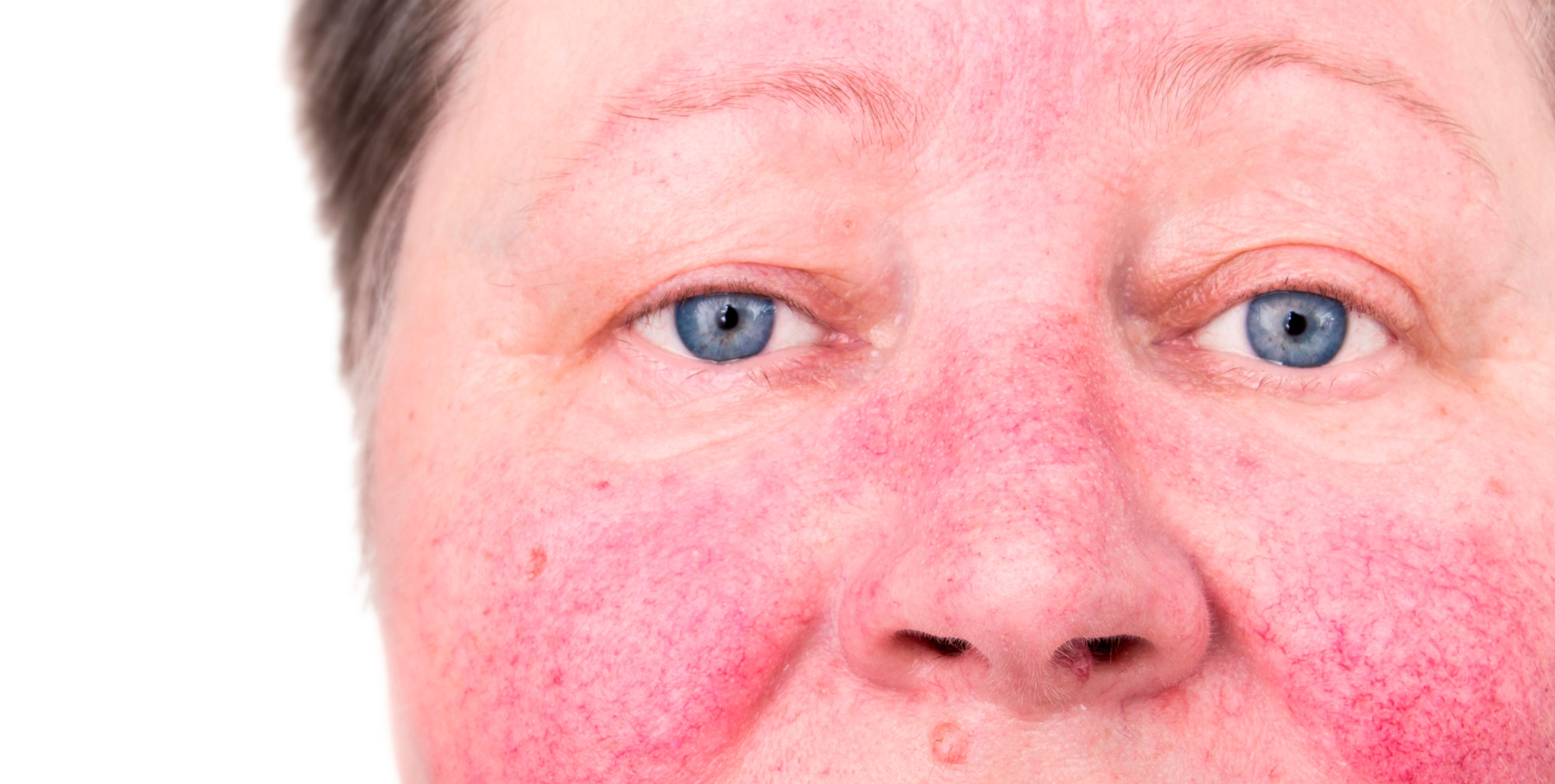
Rosacea
Many people suffer daily with this persistent, non-contagious skin inflammation on their faces. Flushing, blushing, sensitive skin, prominent blood vessels and pimples may all be symptoms of rosacea. It takes the skilled eye of a specialist dermatologist to make a correct diagnosis, and therefore be able to institute effective treatment.
Though it’s more common in fair skinned people aged 35 - 60, those with dark skin can also get rosacea – and because their redness is more difficult to see, rosacea can often go undiagnosed.
Rosacea treatment involves avoiding triggers and using special, gentle skin care products. It may also require prescribed creams and oral medications. Vascular laser may also be helpful, but these treatments must be performed by experienced practitioners and tailored to each individual patient. Otherwise, lasers can flare rosacea and even cause burning, blistering and scarring.
Types of rosacea
Rosacea is typically classified into 4 main subtypes:
- Erythematotelangiectatic
- Papulopustular
- Phymatous
- Ocular
Patients with rosacea tend to complain of sensitive skin. There may be overlap between the four subtypes of rosacea.
In Erythematotelangiectatic rosacea (ETR), dilated blood vessels can be seen on the face: usually the cheeks, nose and chin. Flushing can be an additional cause of anxiety. In addition, there is sometimes a fixed red colour to the skin known as persistent erythema.
Patients with Papulopustular rosacea have pimple-like lesions occurring mostly on the nose and cheeks. These lesions can be pus-filled or simply small red bumps, and this form of rosacea can often be mistaken for acne. The key difference is the lack of comedones (white heads and blackheads) and a lack of lesions on non-facial skin. These patients are often in an older age group than acne sufferers.
Phymatous rosacea refers to the thickened and porous skin that is sometimes observed. Men are most commonly affected, and most often on the nose (called rhinophyma). Similar changes can develop on the chin and forehead; also the ears and eyelids (though these are rare). Ablative laser therapy is excellent at reshaping the anatomical landmark being affected.
Rosacea can also affect the eyes. This is known as ocular rosacea and may occur whether or not rosacea also affects facial skin. Patients may experience a sensation of dry, gritty or irritated eyes. Simple treatments, such as regular use of eye drops and eyelid cleansers, are often helpful. The advice of an optometrist or eye specialist may be useful for more severe cases.
Rarer variants of rosacea also exist, including granulomatous rosacea and a severe form called rosacea fulminans or pyoderma faciale.
Causes of rosacea
There is no one cause of rosacea. Science continues to progress each year in understanding more of the complex factors that interact to produce the changes of rosacea seen in your skin. Your immune system, inflammatory signallers, nerve endings, blood vessels and genetics all play a role. A mite that lives on normal skin, but in higher numbers in rosacea-prone skin, also contributes to the inflammation.
Triggers for flares of rosacea vary between patients. For many, the most important trigger is UV, making sun protection essential. Other triggers include spicy foods, hot drinks, caffeine, irritating skincare and skin treatments such as facials. While alcohol can aggravate rosacea in some people, excessive alcohol consumption does not cause the condition (as was once believed).
Treatment of rosacea
The specific treatment of rosacea will depend on many factors, including the subtype of rosacea, as well as patient preferences and tolerances. Avoiding known triggers is critical.
Keeping skin care regimes simple and being gentle on your skin is important. Use soap-free cleansers that are pH balanced and use lukewarm water when washing your face. Dry your face by dabbing with a soft towel, rather than vigorously rubbing. Toners, abrasive exfoliators, peels and similar treatments should be avoided.
Use mineral based powder makeup instead of thick concealers. Avoid creams that have botanical ingredients, as these can often irritate the skin. Finding a broad-spectrum sunscreen that is well tolerated is also important. It’s very important to apply regularly during the day, if you’re out and about.
Your dermatologist will discuss prescription treatment options with you at your consultation, along with the role of IPL and vascular lasers in significantly improving background redness.
Rosacea and you
The way we look directly affects our self-esteem. Rosacea is more than just a surface irritation, it’s a disorder that can have a substantial impact on our quality of life. If you are experiencing symptoms of depression or anxiety about your rosacea you should talk to your GP about a referral to one of our experienced dermatologists.